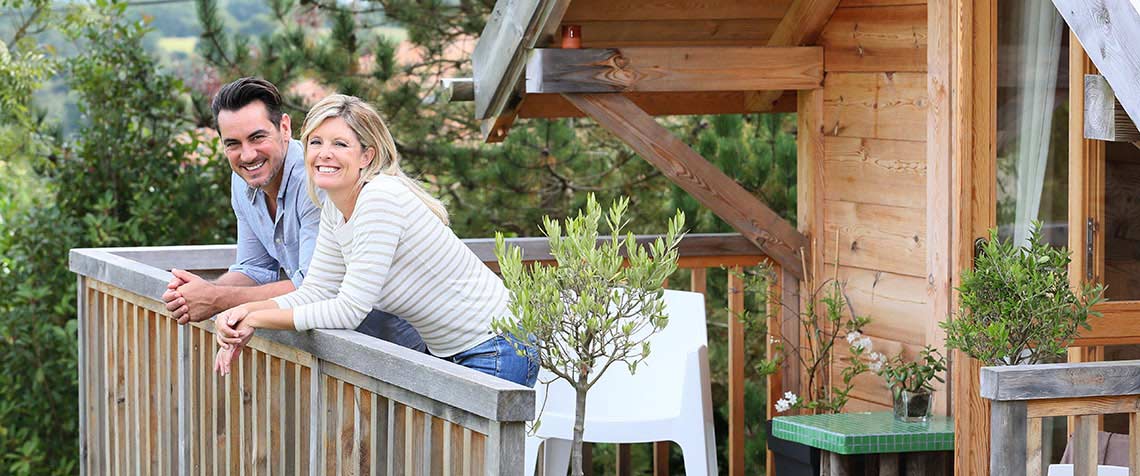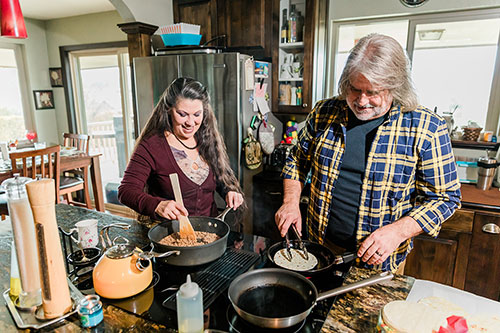
Your home may be your biggest asset. Aside from building memories, the home you own has also been building equity. Equity is the difference between what you owe on a mortgage and the value of your home. The less you owe, the more equity you have. Equity also increases when your home jumps in value. But how can you tap into this equity? How can it help you afford a second home?
Take advantage of your home’s equity with cash-out refinance loans in Washington. Everyone has large expenses. Equity can help cover these costs. Do you need a large sum of money? You don’t have to sell your home to access it. Keep your primary home and buy a second home with a cash-out refinance. But how can you buy a second home with a refinance? Let’s explore how to best use your home’s equity.
What is a cash-out refinance?
Can you tap into your home’s equity for cash-out refinance loans in Washington? Simply put, yes. Replace your home loan with a new one. Get a new, larger loan with a cash-out refinance. Since that new home loan is for more than what you owe, the difference between your old mortgage and new mortgage is yours.
Whether you are dreaming of a second family home, a vacation home or an investment property, a cash-out refinance loan can be used to access the equity in your current home. You receive this cash at closing and are free to spend it as needed. Remember, a new loan comes with new closing costs. You can pay these costs directly or apply them to your new loan. Your lender may also offer the ability to refinance with no closing costs, as is the case with Solarity.
How does cash-out refinance work?
How much you can borrow depends on the value of your home and how much you’ve already paid against your original mortgage. You can determine the value of your home through an appraisal. Your home may be worth more than the price you paid. The more your home is worth, the more you can borrow.
Let’s say you need $75,000 cash for an expense. You learn your home is valued at $225,000 and you owe $100,000 on your mortgage. This gives you $125,000 in equity, and you decide to access that equity with a cash-out refinance. You refinance your $125,000 balance for a new loan of $200,000. At closing, you receive $75,000 in cash.
Take note, lenders typically require you to maintain at least 20% equity in your home.
How can I use refinancing to buy a second home?
When you free up your money by cashing out your home equity, you can use these funds to make a down payment on your second home. If you have enough equity, you can even pay the entire purchase price in cash.
Don’t just accept the same terms you had with your old loan, though. Take advantage of this new loan and look for lower interest rates. It’s a great chance to get better terms on the loan for your current home. Shorten or lengthen the loan term, remove pesky private mortgage insurance (PMI) or change the loan type to suit your current needs. Maybe you want to switch to an adjustable-rate loan or look for something more consistent. You can cash out your equity and refinance into a lower interest rate and better terms all at once.
A cash-out refinance allows you to take out up to 80% of your home’s equity to put toward whatever you like—in this case, the down payment or full amount of a second house. Then you keep living in the home you are refinancing, use the second home as a vacation home or investment property and start paying off your new mortgage loan.
Am I eligible for a cash-out refinance?
If you have at least 20% equity in your primary home, you may be eligible for a cash-out refinance. A lender looks at equity, credit score, debt-to-income ratio and loan-to-value ratio. But what do all these terms mean?
Your credit score predicts how likely you are to repay back a loan on time. The higher your credit score, the less risk you are to a lender. For a cash-out refinance, aim for a credit score of 620 or higher. If you aren’t quite there, raise your credit score by making payments on time. Use your credit card for purchases and pay them off immediately. You should also remedy any errors in your credit report.
Debt-to-income (DTI) ratio is your total monthly expenses divided by your monthly income. Keep your DTI at 50% or less to qualify for refinancing. Loan-to-value ratio (LTV) compares your current mortgage with your home’s value. A lender will look at your LTV when approving a loan. If your LTV is 80% or less, you are a good candidate for a cash-out refinance.
Is refinancing right for me?
Is a cash-out refinance the best option for purchasing your second home? If you have a good amount of equity in your home and want to change the terms of your loan, it’s time to consider refinancing.
Remember, you can take advantage of a cash-out refinance to shop around for better terms. When is the right time? When your credit score is higher or rates are lower than when you took out your original loan.
Keep in mind that refinancing takes time—so make sure to choose the right lender. A good lender will help simplify the process. When you are in the market for a lender in Washington State, look for a credit union. Keep what’s yours with fewer fees and better rates.
When you’re ready to put your equity to work for you, Solarity Credit Union’s expert Home Loan Guides can help you crunch the numbers. Whether you’re looking to cash out equity, shorten your term or lower your monthly payments—or do all three— Solarity makes refinancing your home loan fast, affordable and easy. Talk to a Home Loan Guide and start looking at your refinancing options today.What's your Solarity story?
We're on a mission to tell the stories of our members and how they are living their best lives. Do you have a Solarity story to share?



